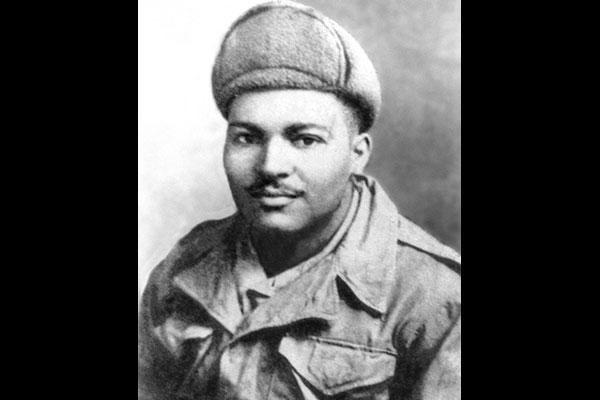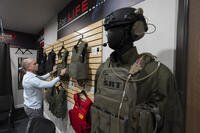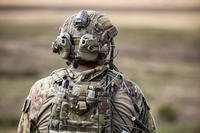When Army Sgt. Cornelius Charlton volunteered for duty with Company C, its commander was surprised to find an experienced noncommissioned officer among the crop of greenhorn privates he'd been given. "Why'd they send him here?" the captain asked. "Is he a troublemaker?"
The answer was no. Charlton, on his second enlistment tour, wanted to be at the front lines. He was a dedicated soldier who was so squared away that he had been made sergeant major of his previous battalion, even though he hadn't yet received a master sergeant's "rockers" for his stripes.
"Connie" Charlton demonstrated his worth just weeks after his transfer, when Company C led the regiment's assault towards the north with the Eighth Army in May 1951. On a rocky ridge, the 3rd Battalion ran into trouble trying to take Hill 543. Charlton's platoon split its forces, and his lieutenant was wounded. Charlton, who had already been recommended for a battlefield commission, took command. He spearheaded the assault, eliminating two hostile positions and killing six of the enemy. He had regrouped his men, and they were scrambling up the ridge when Charlton was hit in the chest by a grenade. Refusing medical attention, he led another charge through a hail of fire. As he yelled orders to his men, Charlton threw himself on the gun emplacement and put it out of action. Another grenade struck and killed him.
Charlton's documented heroism would be worthy of the Medal of Honor, which was awarded to him posthumously, without further comment. However, it is important to note that his platoon, company, and battalion were all part of the Army's 24th Regiment — the Buffalo Soldiers — which was disbanded in 1951, purportedly for poor performance in combat.
The Buffalo Soldiers, founded shortly after the Civil War, served with distinction in many conflicts. However, by the start of the Korean War, poor leadership and segregation had taken their toll on the regiment. Arguments about black soldiers being cowardly, lazy, and untrustworthy were mentioned as reasons for the unit's problems.
The Army's Center for Military History has since published "Black Soldier, White Army: The 24th Infantry Regiment in Korea," a revision that acknowledges the regiment's shortcomings but puts the blame for these where it belongs: on prejudice, poor leadership, and inexperience. The courage and sacrifice of Sgt. Cornelius Charlton and other Buffalo Soldiers who served honorably in Korea and elsewhere can now shine properly in light of these findings.















